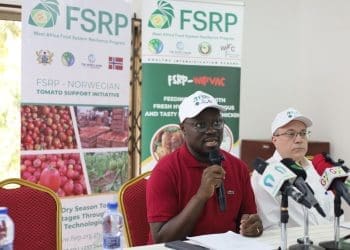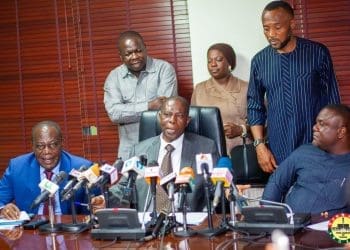The Ghana AIDS Commission has launched this year’s World AIDS Day celebration under the theme, ‘Overcoming Disruption, Transforming the AIDS Response’.
The Acting Director General of the Commission, Dr Khamacelle Prosper Akanbong, said the day invites all to reflect and renew their commitment and collective action to HIV and AIDS.
It also reminds us as a society to pause, reflect and renew our commitment to ensuring that no one is left behind.”
Reflecting on the theme ‘Overcoming Disruption, Transforming the AIDS Response’, Dr Akanbong said it is a vivid description of the world we find ourselves in right now.
Dr Akanbong noted that Ghana’s HIV response has encountered significant disruptions, including funding constraints, shifting priorities, competing health emergencies and evolving social dynamics.
He, however, stated that this situation “compels us not to relent or retreat, but to work to ensure that our gains are not only protected but accelerated.”
The Acting Director General stated that this year’s celebrations hold additional significance for Ghana as the nation is set to host the 23rd International Conference on AIDS and STIs in Africa (ICASA 2025) from December 3 to 8,2025.
In view of this, the AIDS Commission and its partners will organise a joint health walk scheduled for Saturday, November 29, 2025.
UNAIDS will screen a film at the Commonwealth Amphitheatre of the University of Ghana on the same day to raise funds for children with disabilities impacted by HIV and AIDS.
In the course of the month, the Commission will embark on a media campaign as well as a condom distribution drive across the country.
This will culminate in a national address by the President, John Dramani Mahama, on Monday, December 1, on the way forward, given the financial disruptions.
The Board Chairman of the AIDS Commission, Kakra Essamuah, in his speech, said, “World AIDS Day offers us a unique opportunity to reflect on our collective journey in the response to HIV and AIDS to celebrate our gains, to remember those we have lost, and to renew our resolve to achieve an AIDS-free Ghana.”
The day, he further stated, serves as a reminder that “the response to HIV is far from over, and that ending AIDS as a public health threat by 2030 remains both a moral obligation and a national development priority.”
He acknowledged the progress made in Ghana to reduce the number of infections recorded in the country.
Ghana, he said, has achieved commendable results through evidence-based prevention, treatment, and care interventions.
Today, almost 70% of people living with HIV in Ghana know their status, and a significant number are receiving life-saving antiretroviral therapy.
He, however, lamented the steady decline in financial support from long-standing international partners in the fight against HIV and AIDS, and appealed to corporate organisations to step forward to partner with the Commission to generate funds to continue the work already started.
The Country Director of the Joint United Nations Programme on HIV/AIDS (UNAIDS), Hector Sucilla Perez, praised the government of Ghana and the GAC for their resilience, despite the disruptions to the global fight against HIV and AIDS, saying, “We are showing that disruption does not define us; our response does.”
He, however, cautioned against complacency in view of the rising number of new cases.
He said, “We must not be complacent. Rising new infections among adolescents and young people are deeply concerning.”
He also reminded Ghanaians that ending AIDS means ending stigma and ensuring dignity for all.
He made a call for a more pan-African approach to the fight against HIV/AIDS, saying, “For years, we have been transforming the HIV response within our communities; now we must drive a transformation that echoes across the continent, one that secures Africa’s health sovereignty and safeguards the well-being of generations to come.”












